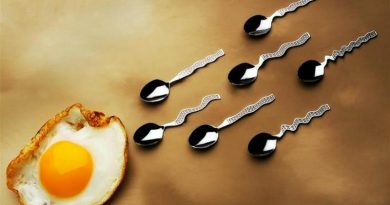Refractory Period: What Is It, Its Duration and How To Shorten It?
Both men and women go through a stage called the “refractory period” after orgasm. At this point, their bodies “recover” from the pleasure of sexual activity and go back to how they were before. When a man goes through a refractory period, his penis gets soft again.
A man can’t get an erection during the refractory time. This kind of reaction is called a physiological refractory period, and it means that a person can’t have sex again because their body won’t let them.
Many women, unlike most men, can have more than one orgasm, which suggests that they don’t usually have a natural refractory period. Also, a woman’s genitalia may stay moist after sexual activity, even if she no longer feels excited, which makes it easier to have another sexual encounter.
You will be interested on: Sexologist in Victoria
Males Refractory Period
A man can’t get an erection or ejaculate again during the refractory time. This physical reaction is often accompanied by a time of psychological refractoriness, when the person doesn’t feel like having sex.
The refractory time can last anywhere from a few minutes to 24 hours or longer, depending on the person. Researchers aren’t sure what causes the refractory period or why it lasts so long for some people and not for others.
Also, not all men have something called a refractory time. This shows that prolactin may have something to do with whether or not a man can have more than one orgasm. But because this was a small study and because females also make more prolactin after having an orgasm, scientists need to keep looking into this.
Keep reading: Sexologist in Gatineau
Refractory Period For Females
Even though some women lose interest in being sexual after having an orgasm, they are usually still physically able to be sexual again.
Some women do, however, say that their bodies have a refractory time. One study showed that a woman’s clitoris can become too sensitive after having an orgasm to be used again. 96% of the 174 women who had this sign did not want to have sex again because of it.
So far, most of the study on refractory periods has been done on men, so scientists don’t know as much about how women react. Scientists will have to do more study to learn about a wider range of points of view.
You will be interested on: Sexologist in Longueuil
Is There Anything I Can Do To Shorten the refractory period?
You can. There are three main things that can affect the length of your refractory period that you may be able to change: your level of desire, your sexual function, and your health as a whole.
To get people excited
Try a different spot. Different positions mean different feelings. For example, you may find that you have more control over your excitement and when you’re going to ejaculate if you’re on top of your partner or if they’re on top of you.
Imagine or play a part. Think about things that turn you on and tell your partner about them. Think about putting on a “sex scene” with you and your partner.
Experiment with erogenous zones. Have your partner pull, twist, or pinch your ears, neck, nipples, lips, testicles, and other sensitive, nerve-rich areas.
Keep reading: Sexologist in Windsor
Factors Affecting The Refractory Period
There are many things that can affect how long the latency period is, such as:
- a person’s general health
- quality of relationships
- quality of sex
- frequency of sex
During sex, dopamine is very important. Researchers think that a man’s amount of dopamine may affect whether or not he can get an erection. But the study also says that too much dopamine could be bad for your sexual health.
Some of the same things that are good for your health as a whole, like exercise, may help keep your dopamine levels in check. Dopamine can also be boosted by other things that are fun, like learning something new, having a good conversation, or mastering a new task.
You will be interested on: Sexologist in Burnaby
Summary
Everyone has a different refractory time, so keep that in mind. You might even notice that your refractory period changes from one episode to the next.
It all comes down to a few different things. Some things you can change, like how much you drink and how you eat in general, but for others, like age and long-term health problems, you can’t.
See a sexologist or a doctor who knows about human sexuality if you’re worried about how long it takes you to reach or recover from pleasure.
Related Links :
- Ayurveda Infertility Treatment Clinic in Haima
- Ayurveda Infertility Treatment Clinic in Raiganj
- Ayurveda Infertility Treatment Clinic in Harapanahalli
- Ayurveda Infertility Treatment Clinic in Bankapura
- Ayurveda Infertility Treatment Clinic in Kumbalagodu
- Ayurveda Infertility Treatment Clinic in Veraval
- Ayurveda Infertility & Specialist at Bangalore
- Ayurveda Infertility Treatment Clinic in Kozhikode
- Ayurveda Infertility Treatment Clinic in Asansol
- Ayurveda Infertility Treatment Clinic in mumbai
- Ayurveda Infertility Treatment Clinic in Donimalai Township
- Ayurveda Infertility Treatment Clinic in As Sib





